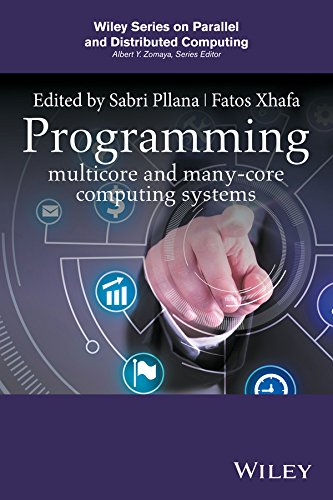Expert in Smart Computing and Optimization Technologies


Sabri Pllana is a renowned expert in high performance computing, AI applications, and system optimization.
Examples of Publications
DECICE: Device-Edge-Cloud Intelligent Collaboration Framework. In Proceedings of the 20th ACM International Conference on Computing Frontiers (CF '23). Association for Computing Machinery, New York, NY, USA, 266–271. https://doi.org/10.1145/3587135.3592179
Optimization of heterogeneous systems with AI planning heuristics and machine learning: a performance and energy aware approach. Computing (2021). https://doi.org/10.1007/s00607-021-01017-6.
Programming Languages for Data-Intensive HPC Applications: a Systematic Mapping Study. Parallel Computing, Volume 91, 2020, https://doi.org/10.1016/j.parco.2019.102584
Using meta-heuristics and machine learning for software optimization of parallel computing systems: a systematic literature review. Computing 101, 893–936 (2019). https://doi.org/10.1007/s00607-018-0614-9
CHAOS: a parallelization scheme for training convolutional neural networks on Intel Xeon Phi. J Supercomput 75, 197–227 (2019). https://doi.org/10.1007/s11227-017-1994-x
Medical Data Processing and Analysis for Remote Health and Activities Monitoring. In: High-Performance Modelling and Simulation for Big Data Applications. Springer, Cham. https://doi.org/10.1007/978-3-030-16272-6_7
IoT-based Urban Noise Identification Using Machine Learning: Performance of SVM, KNN, Bagging, and Random Forest. In Proceedings of the International Conference on Omni-Layer Intelligent Systems (COINS '19). Association for Computing Machinery, New York, NY, USA, 62–67. https://doi.org/10.1145/3312614.3312631
Using a multi-agent system and artificial intelligence for monitoring and improving the cloud performance and security, Future Generation Computer Systems, Volume 86, 2018, Pages 1106-1117, ISSN 0167-739X, https://doi.org/10.1016/j.future.2017.05.046.
Sabri Pllana holds a Ph.D. (with distinction) in Computer Science from the Vienna University of Technology in Austria and is currently affiliated with the University of Vienna. His research focuses on high-performance computing (HPC), artificial intelligence (AI), and systems modelling and optimization.
Dr. Pllana is a pioneering researcher in the intersection of AI and software engineering. His foundational contributions to the field include developing the first UML extension for parallel and distributed systems (≪UML≫ 2002) and authoring an early vision paper on using AI agents for software engineering (Euro-Par 2008). He is also the creator of the first AI-enabled assistant for parallel programming, published in the Journal of Computational Science (2018). More recently, he introduced an innovative optimization approach for heterogeneous computing systems, combining AI planning heuristics with machine learning techniques, as detailed in Computing (2021).
Dr. Pllana has played a significant role in several EU-funded projects, notably as the coordinator for the FP7 project PEPPHER. He has also served as an expert for the selection and monitoring of various EU-funded projects. He is a Senior Member of the IEEE, an associate editor of the Computing journal (Springer), and a HiPEAC member. His research impact is further demonstrated by an h-index of 31 on Google Scholar.
Gemini summary of PAPA paper: "the PAPA paper is an important historical document that demonstrated the early potential of AI to assist with complex tasks in a conversational manner. It laid the groundwork for modern, AI-powered programming assistants and stands as a testament to the early exploration of applying cognitive technology to real-world educational and technical challenges."


